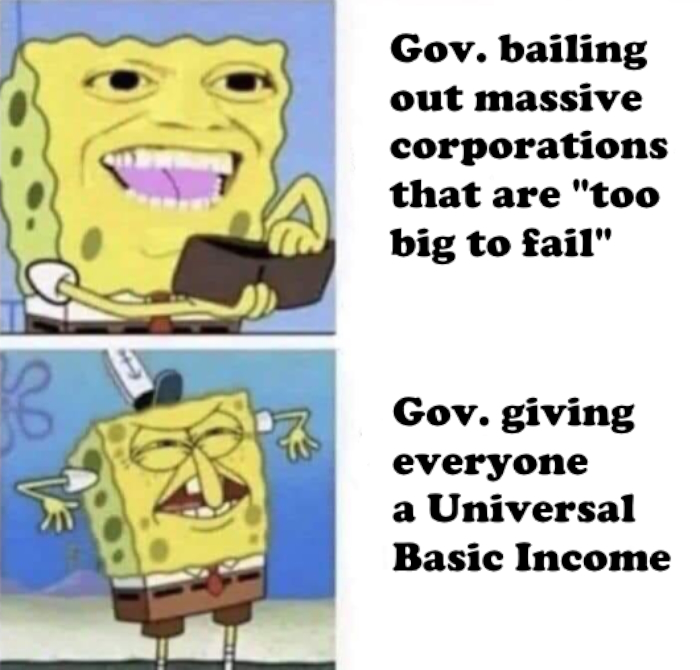this post was submitted on 05 Jan 2024
1089 points (95.9% liked)
memes
10665 readers
1706 users here now
Community rules
1. Be civil
No trolling, bigotry or other insulting / annoying behaviour
2. No politics
This is non-politics community. For political memes please go to !politicalmemes@lemmy.world
3. No recent reposts
Check for reposts when posting a meme, you can only repost after 1 month
4. No bots
No bots without the express approval of the mods or the admins
5. No Spam/Ads
No advertisements or spam. This is an instance rule and the only way to live.
Sister communities
- !tenforward@lemmy.world : Star Trek memes, chat and shitposts
- !lemmyshitpost@lemmy.world : Lemmy Shitposts, anything and everything goes.
- !linuxmemes@lemmy.world : Linux themed memes
- !comicstrips@lemmy.world : for those who love comic stories.
founded 2 years ago
MODERATORS
you are viewing a single comment's thread
view the rest of the comments
view the rest of the comments

The way I think about it is by creating a scenario. We give 100% of people $1000 dollars (just for sake of argument). Some people use this for groceries, others for car payments, others for investments. Some people don't even realize they got that money bc they were so rich. Some people can afford to pay for school supplies for kids. They key point is not everyone is using it for the same thing.
The reason it sounds like it should become the new zero is bc it does happen in some situations. If the government gave everyone that rents $100, then landlords will raise rent by $100 a month later. The main difference between the two is how specific the scope of the money is.
Yes, there would be economic changes (not necessarily downsides) such as higher inflation due to government spending, but also increased GDP which will stimulate the economy drastically. It will lead to higher unemployment, not bc people stop needing to work, but bc they can quit their second job or focus on taking care of kids full time (which that actually doesn't change unemployment, but it would change the workforce numbers).
I am not an economics major or anything, but I tried to give reasons to explain why we would expect these changes to happen in the real world.
UK gave away a lot of money during the pandemic to support low earners, it backfired real hard.
Governments should invest into education so people can move to more productive jobs which pay more money. That will improve the lives of everyone. There should be no low skilled jobs in developed countries. Giving free money instead is always a bad idea.